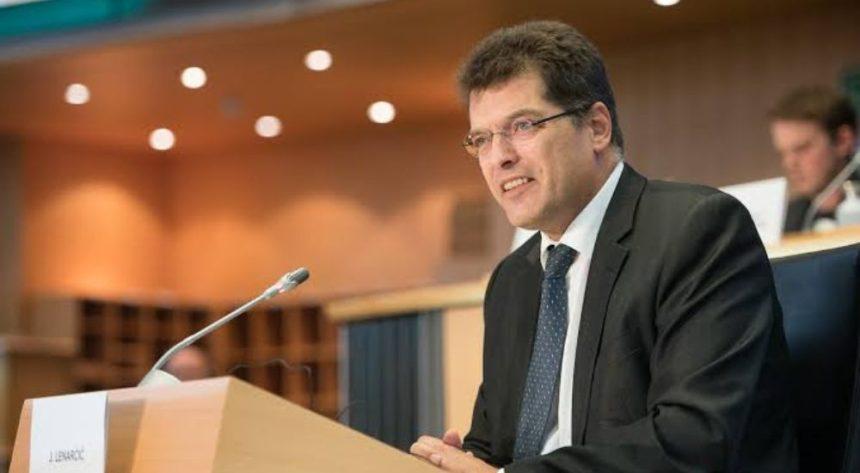The European Union has unveiled a significant humanitarian aid package totaling €201 million to support vulnerable populations in Burkina Faso, Cameroon, Chad, Mali, Mauritania, Niger, and Nigeria.
This announcement was made during the Senior Officials Meeting on the Sahel and Lake Chad, attended by EU Commissioner for Crisis Management, Janez Lenarčič, on Tuesday.
In a statement provided to journalists by the Head of Communication for the EU to Nigeria, Modestus Chukwulaka, the funding will be allocated to essential services such as food security, malnutrition treatment, healthcare, protection, water, and sanitation.

The aid distribution is as follows: Burkina Faso will receive €26.9 million, Cameroon €21 million, Chad €57.9 million, Mali €24 million, Mauritania €5.7 million, Niger €24.6 million, and Nigeria €31.5 million.
READ ALSO: EU Criticizes Nigeria’s Low VAT Rate and Lack of Transparency
Chad’s allocation includes an additional €8.7 million to address the consequences of the conflict in Sudan on neighboring countries and €3.1 million to support an EU Humanitarian Air Bridge operation in the East. This is in addition to the initial €45.3 million announced by Commissioner Lenarčič during his visit to the country at the end of January 2024.
Mauritania’s allocation includes a reinforcement of €3 million allocated in January 2024 in response to the increasing number of Malian refugees in the country.
Lenarčič highlighted the severe impact of insecurity and violence in the Sahel and Lake Chad regions, noting that over 35 million people require aid. He emphasized the need for the international community to intensify efforts to bridge the growing gap between needs and available resources.
READ ALSO: AU, ECOWAS, EU, Others Convene for Dialogue Forum in Abuja
“Insecurity, violence, and over a decade of armed conflict are driving communities in the Sahel and Lake Chad regions to new depths of suffering.
Today, over 35 million people across these regions need aid, while the humanitarian crisis is now spilling over into West Africa’s coastal countries. At the same time, we are facing an increasingly shrinking response capacity and humanitarian access.
It is therefore crucial that the international community scales up its efforts to bridge the growing gap between human need and available resources. The EU is doing its part by increasing its pledge for 2024 to over 200 million euros across the two regions. I urge the rest of the international community to play its part,” stated Lenarčič.



